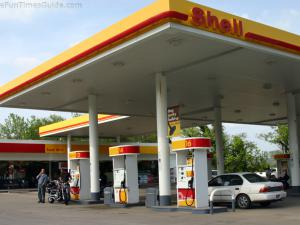The drop in price comes on the heels of its competitor, Total, which reduced its high grade petrol, Effimax, from GH¢4.420 to GH¢4.360 after the GRAPHIC BUSINESS published stories about the high price of the premium fuels in spite of the heavy fall in crude oil prices on the international market.
Between October last year to date, price of crude oil, the major product used in the production of the premium fuels, had fallen from about US$109 per barrel to the present price of about US$56 per barrel, having dropped to as low as US$48 a barrel at the beginning of the year.
Although Shell has not officially explained the rationale for its action, it told the paper earlier in an email interview that it was waiting to deplete its old stock which it bought at a higher price.
It had explained that: “Fuel price at the pump is comprised of a number of components, including the price of crude oil, refinery costs, taxes and the cost of getting the fuel from its source to the pump. Currency fluctuations and stock storage costs can also have a significant effect on cost.”
It said in a regulated market like Ghana we have no control on the price of regular fuel and diesel products as these are independently determined by the regulator.
“For Shell V-Power – our premium fuel designed to help engines deliver their full potential – we have some more control of the pump price. We constantly review this and aim to provide as low a cost as possible for the consumer, and where possible cost savings from lower priced crude will be passed on at the pump,” Shell management said in an email sent to the paper earlier.
Price war
Price war is a situation where companies continuously lower prices to undercut the competition.
A price war may be used to increase revenue in the short term or as a longer-term strategy to gain market share.
Both companies, Shell and Total, had the prices of their high quality petrol at GH¢4.420 per litre before the beginning of the year but are now being forced to reduce after experts in the industry and customers began to question the reason for keeping their prices high when crude oil prices on the international market were falling drastically.
Total responded first with almost a two per cent reduction in the price of Effimax, explaining that it had passed on the discount it received from its suppliers to the customer.
Shell has also followed – dropping slightly lower than Total; a move experts believe may spark a price war which may inure to the benefit of their customers.
“In the petroleum sector, particularly when it comes to downstream activities, it is better to sell volumes to make more money and therefore Shell is being strategic to regain its customers it might have lost when Total dropped below its price,” one expert told the GRAPHIC BUSINESS.
He said, “The two companies still have to do more to make their prices realistic and once this has started, we wait to see.”




